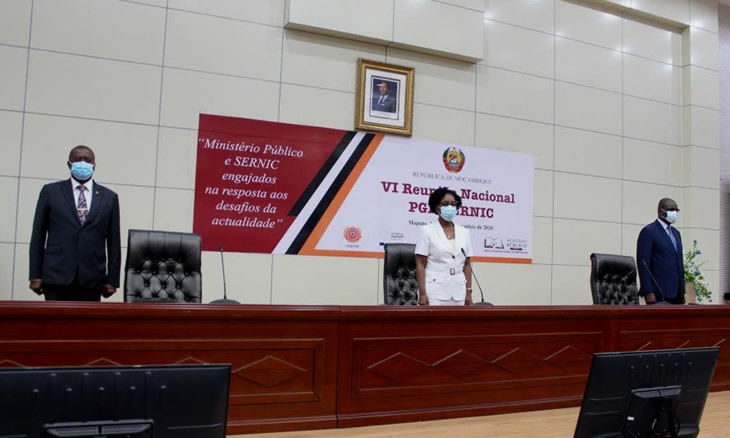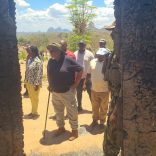Mozambique: Homeless man found dead in Maputo's Baixa
Mozambique: Organised crime “a central concern of security policy” – AIM report

Photo: O País
Organised and transnational crime “should be a central concern of our internal security policy”, declared Mozambique’s Attorney-General, Beatriz Buchili, on Monday.
Speaking at the opening session of a three day national meeting between her office and the criminal investigation service (Sernic), Buchili said the expressions of such organised crime include terrorism, trafficking in people and in drugs, embezzlement, kidnapping and money laundering.
The reduction in distances caused by globalisation “has meant that threats and risks which once seemed far away, such as the crime of terrorism, have now come to generate the same insecurity as those that were much closer”, she added.
Sernic is a relatively new institution, separate from the police force, and Buchili stressed the need to speed up its implantation across the entire country. The evolution of the methods used by criminals, she said, “requires a highly intelligent police response”. This was not compatible “with an apathetic criminal police, lacking in means of investigation”.
Criminals were now using computers, the internet and social media, posing new challenges to criminal investigators.
“So we must strengthen our crime laboratories with modern and advanced investigation equipment”, Buchili said, “and we must bank on our staff specialising in various matters, including cybercrime”. In that area, investigators could work with the Cybercrime Office recently set up within the Attorney-General’s Office.
Buchili warned that organised crime attempts to infiltrate state institutions, including the institutions dedicated to fighting against crime, and she called for a drive to identify those infiltrators.
“We reiterate the need for a far-reaching internal exercise, seeking, on the one hand to identify and purge those who are collaborating with crime and, on the other, to improve the criteria for selecting candidates to join the ranks of our judicial institutions”, she stressed.
Buchili admitted that many citizens do not trust the police or the judiciary, and so do not collaborate with investigations into serious crimes.
“We cannot continue with situations where citizens do not cooperate in investigating kidnappings, murders, and corruption among other crimes because they say our institutions are not credible”, she said.
This was highly damaging “because the collaboration of victims, witnesses and other citizens is fundamental for clearing up cases”, Buchili stressed. “We must do everything so that citizens continue to trust in our institutions and so that together we can bring safety and tranquillity to our society”.
Interior Minister Amade Miquidade told the meeting that “terrorism, kidnappings, drug trafficking, cybercrime, money laundering and other expressions or organised crime are the most serious challenges that the administration of justice has faced in recent years”.
“It is imperative and fundamental that mechanisms be found to prevent these crimes, as well as rapid, efficient and merciless ways of fighting against them”, he declared.
Miquidade warned that, in any partnership that Mozambique forms because of its geo-strategic position, “we must always be the strongest link, because it is we, in the first and last instance, who have the duty to defend our country and give life to our flag”.












Leave a Reply
Be the First to Comment!
You must be logged in to post a comment.
You must be logged in to post a comment.